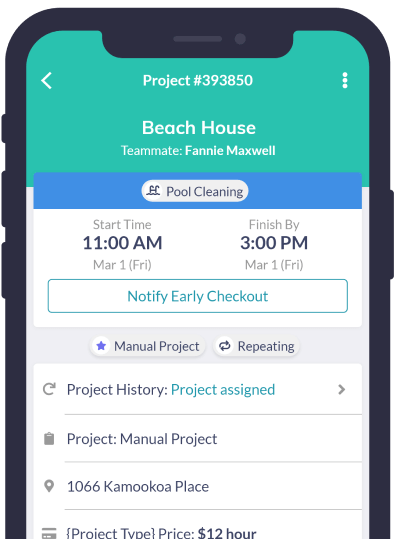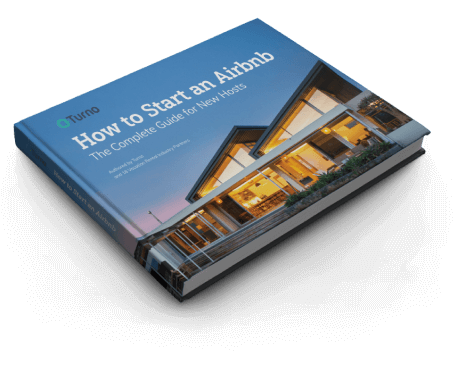How to Communicate With Guests Before They Book
For many hosts, guest communication begins at the moment of check-in. However, pre-stay communication plays a key role in your relationship with guests, both potential and confirmed.
A poor approach to pre-stay communication can mean losing out on bookings because of incomplete listings or unanswered questions.
If you don’t speak with potential Airbnb guests before they book, you won’t be able to personalize their stay or identify potentially problematic guests you may not want to host. Plus, you need to be sharing important information with guests between booking and check-in that will set you apart as an attentive and thoughtful host.

4 Pre-Stay Communication Tips
The tips below will help you maintain helpful and consistent communication to turn inquiries into bookings.
1. Ensure That Your Listing Description Is Complete
Every guest communication starts with your listing. This is probably the first time that a potential guest ever sees you, so you should be thorough and design your listing with your ideal guest in mind.
- Do you want families to stay with you? Point out why your property is so family-friendly.
- Is your vacation rental geared towards couples? Highlight the romantic experiences in the area.
Your Airbnb listing should be fluid, meaning that it is a dynamic description you should update as you gain more insights into what guests think of your property. While you want to be as thorough as possible when first creating your listing, you should also go through your reviews on a regular basis, discover what guests praise most often, and highlight that in your listing.
But never oversell or exaggerate in your listing. Being honest and realistic about your property is key to securing good ratings: When you falsely advertise your offering, guests lose trust. Plus, overselling is a surefire way to get a bad review, as you’re setting unrealistic expectations from the start.
On the flip side, being up-front about what your property can and can’t offer is the best way to demonstrate your integrity to a potential guest.
2. Respond to Inquiries Immediately
The average Airbnb user spends less than 12 minutes on the site. However, they visit about six listings during their visit, meaning potential guests will only spend about two minutes on your listing.
Needless to say, it’s not enough to respond to inquiries within 24 hours — all inquiries should be answered within minutes before guests have the chance to find another listing and book with them instead of you.
If you don’t want to be glued to your phone at all hours of the day, use a tool like Hospitable for automated replies so you can respond instantly to each guest inquiry without having to do any of the legwork.

To cut down on guest inquiries, and so you know you’re not missing any potential bookings, keep stock of the questions you most often get asked and work the answers into your listing. Remember, your listing is always a work in progress and should constantly be updated and improved.
3. Give Potential Guests Access to FAQs
Even if you write a thorough listing that covers FAQs, many guests skim it, and they don’t hesitate to reach out directly to you when they want a question answered. Remember, you should be able to respond to these questions on the fly.
That’s why you should work to create a set of questions and canned answers that can be copied and pasted quickly. You can also automate FAQ answers with a software that can recognize commonly asked questions and then automate responses.
You can also use these responses as a chance to sell your property. If a potential guest asks about the WIFI and you offer an exceptionally speedy connection, be sure to highlight that.
For example, instead of responding “Yes, the Wi-Fi is good,” say something like “Our Wi-Fi connection is lightning fast. It will allow you to browse social media and stream your favorite shows while your kids are playing video games with no connection delays.” But again, be honest and avoid embellishing aspects of your property that fall short.
4. Learn More About Your Guests
Vetting potential guests before they book isn’t an option if you have Instant Book activated. But if your listings are Request to Book, the final pre-booking communication stage is to learn more about the potential guests staying at your short-term rental. Discover important details about the people who want to stay at your property by asking simple questions like “What brings you to town?”.
By doing this, you’ll discover if they are a good fit for your rental property. For example, perhaps you offer a family-oriented experience but the potential guest is planning a bachelor party.
You’ll also be able to provide guests with a personalized experience: If you know their motives for traveling, you can offer them relevant upsells and recommendations. So, if your guest tells you they’re a young family, promote your partnership with local childcare services or kid-friendly tour providers.
To continue, learning more about your guests helps you avoid bad stays. Does your guest live in town and is just renting your property for the night? Maybe they’re planning to throw a party, which is likely an issue for you.
Plus, this gives you the opportunity to discover if there could be future booking opportunities with a guest. Is their office headquarters in town and will other colleagues be frequently visiting? Take this chance to collect information about potential future stays.
How to Communicate With Guests Between Booking and Check-In
Now that you’ve scored a booking, it’s time to cultivate the guest relationship before they even check in. You can do that by setting expectations, collecting contact details, sharing a personalized guidebook, and sending a check-in message.
Set Expectations on When Your Guests Will Hear From You
As soon as you send a booking confirmation or “thank you for booking” message, you should let your guests know when they’ll hear from you next. A simple message like “I’ll be reaching out a week before your stay with check-in information” will suffice.
It’s counterproductive to send all of the information your guests will need in one long message on the same day they make their reservation. Tell your guests when you’ll be contacting them, and send information in smaller, more digestible segments.
Ask for Your Guests’ Contact Details
Be sure to collect your guests’ emails and even phone numbers when they first book to better be in contact during their stay. Not everyone checks Airbnb messages while they’re on vacation, so having the right contact information is key to making sure you can reach guests if needed.

This is also an opportunity to collect emails to send marketing messages later on to encourage direct bookings and share promotions. However, be sure that you’re transparent and get consent before using any personal contact information for marketing purposes.
Send a Guidebook a Few Days Before Check-In
If you want to take the guest experience to the next level, it’s all in the details. One great way to do this is by sharing a curated guidebook a few days before their stay begins.
Send your guests a PDF with all the helpful information they could need to begin preparing for their trip. This can include packing lists, house rules, things to do in the area, and restaurant recommendations. This not only enhances their stay but also helps position you as an attentive and thoughtful Airbnb host.
Send a Welcome Message on the Morning of Check-In
Your final pre-check-in communication should be a guest welcome letter on the morning of check-in. There are plenty of Airbnb welcome letter templates online that you can use for inspiration.
Depending on what time check-in is, send this message early enough for them to see it a few hours before heading to your property but late enough for it not to wake them up.
Your message should include a reminder of the check-in time, detailed check-in instructions, and anything else guests should know when they arrive at your property. This is also an opportunity to offer early check-in if there’s no turnover that day.
Get More Bookings and Build Trust With the Right Pre-Stay Communication
As you can see, guest communication begins long before a potential guest even sends you a message.
From your property listing all the way to the message sent on the morning of check-in, pre-stay guest communication sets the tone for the entire guest experience, which is why you need to prioritize it as much as you would in-stay or post-stay communication.







